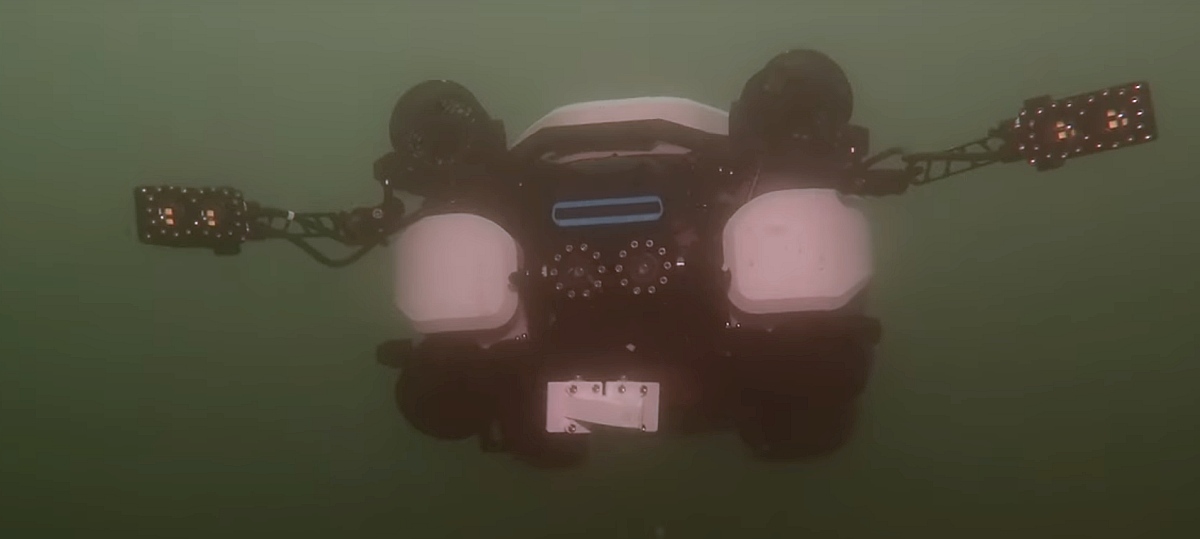
The InnoBooster program will support five new startups on their journey to building their businesses. During the next 18 months, each participant will receive CHF 150’000 in addition to expert support to accelerate their market entry. The startups are developing solutions to address stroke rehabilitation, contribute to a faster transition to sustainable energy and make underwater activities safer with autonomous diving drones.
With an annual budget of CHF 2.5 million for the InnoBooster program, the Gebert Rüf Stiftung supports university-based, high-potential businesses from the Venture Kick program with the aim of substantially accelerating their market entry. The selection committee evaluates applications for the program to choose those with convincing proposals that demonstrate how a research & development or design boost can help them reach the next milestones. The projects will obtain up to CHF 150000 for a maximum of 1.5 years.
The following InnoBoosters describe their projects:
Skaaltec, Zurich | Paulius Viskaitis
SmartVNS is a hardware and software solution for stroke rehabilitation that utilizes a non-invasive form of brain stimulation - the vagus nerve stimulation (VNS). The system includes a motion tracker bracelet and a wireless earpiece for delivering VNS based on real-time movement signals. This is shown to facilitate recovery, but it currently requires complex, manually controlled equipment. Patient's movement data is then analyzed on the cloud for further diagnostic, treatment-advisory, and therapy adherence functions. Unlike this traditional approach, SmartVNS promises to revolutionize stroke rehabilitation as it can be effective from just days after the stroke all the way to individual rehabilitation at home - an area with no effective therapy solutions today. In this project, the team will validate its system in partner clinics, and sell it as a research device. The data collected from these research devices will be used to seek regulatory approval and eventually enter the market as a medical device.
Elythor, Lausanne | Charamaplos Vourtsis
Whether from solar, wind, or fossil fuels, energy is needed for nearly every aspect of our lives. The population today depends on this energy resource and the power grid for a reliable stream of power; however, around US$143B is lost globally every year due to power grid failures, resulting in heavy losses. To reduce the risk of power grids going down, the infrastructure must be inspected and monitored regularly. Elythor’s technology takes the precision of multi-copters and the durability of fixed-wing drones to create an agile, accurate, and robust robot. Its drone can conduct inspections in small and complex spaces and travel the long distances required for power infrastructure. With Elythor, power infrastructure managers can benefit from up to a 40% reduction in cost and a 35% reduction in the time their inspectors spend in the field.
qCella, Zurich | Murielle Schreck
During cold seasons, people heat the entire room and car interiors to keep them warm. It would however be much more energy-efficient to heat the air close to people or directly to the people themselves. The solution from qCella could make this possible. The startup impregnates natural fibers with copper and uses them to develop heating mats with superior properties compared to commercially available heating wires. The mats have the proper electrical resistance across the entire structure so that they heat homogeneously when connected to a power source (e.g., a battery). The thinness and smoothness of the heating mats allow for more energy-efficient heating by eliminating the need for a heat-losing upholstery layer between the mat and the human body. The heating mats can be cut into any shape and size, and they can be easily and cost-effectively integrated into the final heated product. As an R&D/design boost, the InnoBooster will be tremendously helpful to bridge the last R&D gap between our current prototype and a market-ready product and therefore, enable a faster market entry.
REMA membrane-less electrolysis, Lausanne | Steven Schenk
The need for sustainable technologies for the production, storage, transportation, and usage of energy is rising. Due to its many applications as well as its storage capacity, green hydrogen is considered the Swiss Army knife of decarbonization; it is a prime environmentally friendly alternative to fossil fuels, and it can be produced from renewable energy and water and turned back to water when burned. To produce green hydrogen gas, companies use a technique called electrolysis to split water into hydrogen and oxygen. The price and capacity of production are still a hindrance to adopting this technology. A cheaper, more efficient, and more reliable electrolyzer that can be mass-produced rapidly is therefore vital if green hydrogen is to become a viable alternative to fossil fuels. The REMA team have patented a breakthrough membrane-less electrolysis technology which is more robust, can operate at a higher temperature, and is more efficient than current systems.
Tethys Robotics, Zurich | Jonas Wüst
Aquatic environments provide crucial resources and opportunities, such as offshore wind and hydropower. However, they also pose risks due to the presence of thousands of tons of ammunition residues, not only in Switzerland but in oceans around the globe. Underwater work is a daunting and resource-intensive undertaking that poses considerable risks to professional divers, who remain the primary assets for conducting such operations. This is especially true in regions with strong water currents or poor visibility, including rivers, lakes and coastal regions with strong tides. To address this challenge, Tethys Robotics is building the world's only underwater drone that can operate autonomously in all waters, finally enabling operations in strong water flows with poor visibility. It greatly contributes to mitigating risks divers face while drastically reducing the needed personnel involved in underwater work. Its truly autonomous underwater drones aim to replace today's generation of remote-controlled underwater tools.
The next submission deadline is 1 September 2023.
(RAN)























































Please login or sign up to comment.
Commenting guidelines